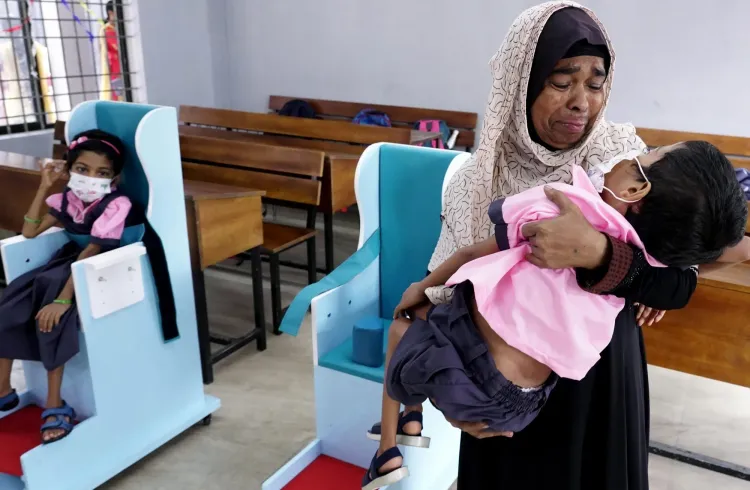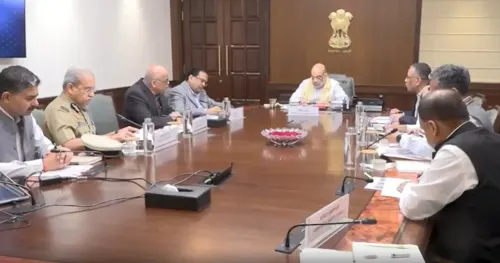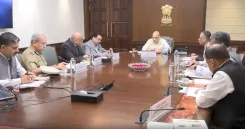Experts Call for Robust National Policies to Aid SMA Patients

Synopsis
Key Takeaways
- Call for stronger national policies to support SMA patients.
- Accessibility to life-saving treatments remains a challenge.
- Financial support under NPRD 2021 needs improvement.
- Kerala's KARE initiative sets a national benchmark in rare disease management.
- Advocacy for local production of orphan drugs is essential.
Thiruvananthapuram, March 14 (NationPress) Prominent healthcare experts addressing the needs of individuals with Spinal Muscular Atrophy (SMA) have called on the central government to enhance policies and funding aimed at these patients, highlighting the critical necessity for improved access to life-saving treatments.
This appeal was made during the inaugural international conference on neuromuscular disorders, APND 2025, which commenced here on Friday.
Leading medical authorities, Dr. Mary Iype and Dr. K.P. Vinayan, indicated that SMA is one of the most severe neuromuscular disorders, resulting in progressive muscle weakness, mobility loss, respiratory issues, and, in critical cases, premature death.
“Although global advancements in gene therapy and targeted treatments have markedly enhanced patient outcomes, access to these therapies in India continues to be a significant challenge due to exorbitant costs and infrastructural inadequacies,” stated the doctors.
They noted that India’s National Policy for Rare Diseases (NPRD 2021) has made progress in rare disease care by providing financial aid of up to Rs 50 lakh for specific treatments and establishing Centres of Excellence (CoEs) to improve diagnosis and care.
“Many patients still encounter obstacles in obtaining timely treatment due to funding delays, high medication prices, and limited access to specialized care. The judiciary has intervened in numerous cases to ensure that funds promised for CoEs are released on time, underscoring the shortcomings in policy implementation. Given the high mortality rates associated with neuromuscular disorders, delays in accessing treatment represent a denial of justice for affected children,” the doctors remarked.
Through their expertise, these leading professionals seek to enhance the country’s approach to rare diseases via preventive measures such as genetic counselling and family tree mapping, which can mitigate the burden of these disorders.
They will also push for incentives to foster local production of orphan drugs—specialized medications designed for rare diseases.
“In developed nations, governments have launched initiatives to encourage investment in orphan drug research and production. India must implement similar strategies and negotiate directly with pharmaceutical innovators to lower drug prices and enhance accessibility,” emphasized Iype.
Notably, Kerala has established itself as a frontrunner in rare disease management through its KARE (Kerala United Against Rare Diseases) initiative, which offers free treatment and multidisciplinary care for affected children.
Remarkably, Kerala is the sole state in India to have successfully provided free drug therapy to over 100 SMA patients, setting a national standard in public healthcare.
Dr. Giovani Baranallo, a professor at the University College of London, praised Kerala's comprehensive approach to SMA, which integrates early screening, genetic diagnosis, physiotherapy, nutrition, and respiratory support.
Experts are optimistic that these discussions will pave the way for enhanced national policies, improved healthcare infrastructure, and increased financial backing to ensure that patients with SMA and other rare diseases receive the timely and affordable care they require.









